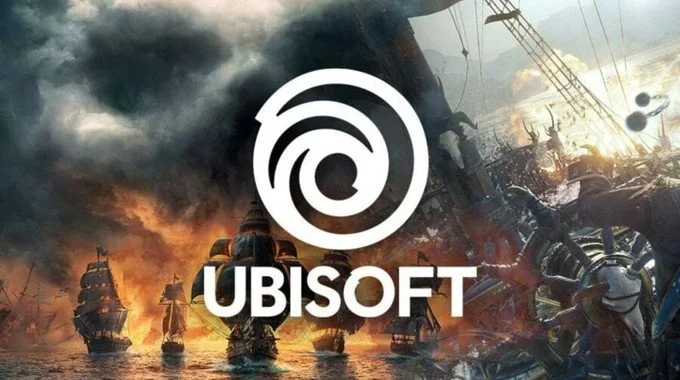Gamepass, Battlefield, and Ubisoft: The Evolving Video Game Industry
The video game industry is in the middle of a seismic shift. Between controversial subscription models and ballooning development budgets, players and developers alike are starting to feel the tension. This week, two major stories lit up the gaming world: the growing backlash against Xbox Game Pass, and Electronic Arts’ seemingly unrealistic expectations for Battlefield 6.
Let’s break down what’s going on, and why gamers should be paying attention.
Is Xbox Game Pass the Industry’s Silent Killer?
At first glance, Xbox Game Pass seems like the ultimate win for gamers. For a flat monthly fee, players get access to hundreds of titles, including massive day-one releases. It’s affordable, convenient, and packed with value. But according to industry insiders, there’s a darker side to this Netflix-for-games approach.
Raphaël Colantonio, founder of Arkane Studios (makers of Dishonored and Prey), recently called Game Pass “unsustainable” and “damaging the industry.” His argument? Game Pass may be great for players, but it’s cannibalizing traditional game sales. If players can access big releases “for free” as part of their subscription, why pay $80 for a standalone title?
Developers, especially smaller studios, may suffer long-term. While Microsoft no doubt cuts upfront checks to get games onto Game Pass, the worry is that these payments won’t offset the lost sales revenue, especially for titles that rely on long-term purchases rather than microtransactions.
To make things worse, Microsoft’s massive layoffs (over 9,000 employees cut in the past year) have sparked rumors that Game Pass’s success might be masking deeper financial strains within Xbox itself. Are Game Pass profits just a band-aid covering a much bigger wound?
That said, it’s not all doom and gloom. Indie games often thrive on Game Pass, gaining exposure they’d never get on crowded storefronts. Plus, for players, it remains one of the best deals in gaming.
Bottom line: Game Pass is a double-edged sword, great for players in the short term, but potentially devastating for developers in the long run.
Battlefield 6: A $400 Million Gamble?
Meanwhile, over at Electronic Arts, things might be even messier.
According to reports, the next Battlefield game, unofficially dubbed Battlefield 6, is costing EA over $400 million to produce. To put that in perspective, that’s on par with blockbuster Hollywood movies like Star Wars: The Force Awakens. EA is aiming for 100 million players, a number that seems wildly optimistic given that Battlefield 1 maxed out around 30 million players at its peak.
So why the huge budget? EA seems desperate to compete with juggernauts like Fortnite and Call of Duty, funneling enormous resources into a game that many fear could flop right out of the gate. And let’s be honest: Battlefield doesn’t carry the hype it once did.
If EA plans to launch Battlefield 6 at $80 like a traditional premium title, expect trouble. In today’s market, especially with so many free-to-play competitors, players aren’t eager to drop AAA money on a franchise that’s been hit or miss in recent years.
There’s speculation that EA might pivot to a free-to-play or hybrid model to reach that ambitious 100 million player target. Maybe something like Warzone or Fortnite’s battle pass-driven ecosystem. They’ll need a serious “hook” to reignite player interest, a revolutionary mode, new technology, or next-level destruction mechanics could help. Otherwise, Battlefield 6 risks becoming yet another big-budget disappointment.
Ubisoft’s Dystopian DRM: Destroy Your Own Games?
While Microsoft and EA battle over the future of subscription services and blockbuster releases, Ubisoft decided to throw gasoline on the fire.
The company recently updated its End-User License Agreement (EULA), adding a bizarre clause: players are now required to “destroy or delete all copies” of a Ubisoft game once it’s taken offline. Seriously.
While there’s no practical way to enforce such a rule (Ubisoft isn’t about to send repo agents to confiscate your physical discs), it highlights the creeping erosion of ownership in digital gaming. Ubisoft’s decision to delist older titles like The Crew, and now formally requiring their deletion, has reignited fears about the future of game preservation. If buying isn’t owning, then what are we actually paying for?
It’s yet another reminder that as gaming becomes more digital and service-driven, our collections are increasingly at the mercy of publishers.
What Does the Future of Gaming Look Like?
From Game Pass controversies to Ubisoft’s draconian EULA, and EA’s high-stakes Battlefield gamble, one thing is clear: the gaming industry is at a crossroads. Subscription models are shaking up traditional revenue streams, ballooning budgets are risking publisher solvency, and digital licensing threatens basic ownership rights.
Gamers are being asked to adapt, but at what cost?
Where do you stand on all of this? Is Game Pass a necessary evolution, or a threat to game development? Will Battlefield 6 find a way to thrive, or is it already doomed? And should Ubisoft (or any publisher) have the power to order players to delete their own games?
Let’s hear your take in the comments below. Do you think the industry is on the right path—or headed for a crash?


